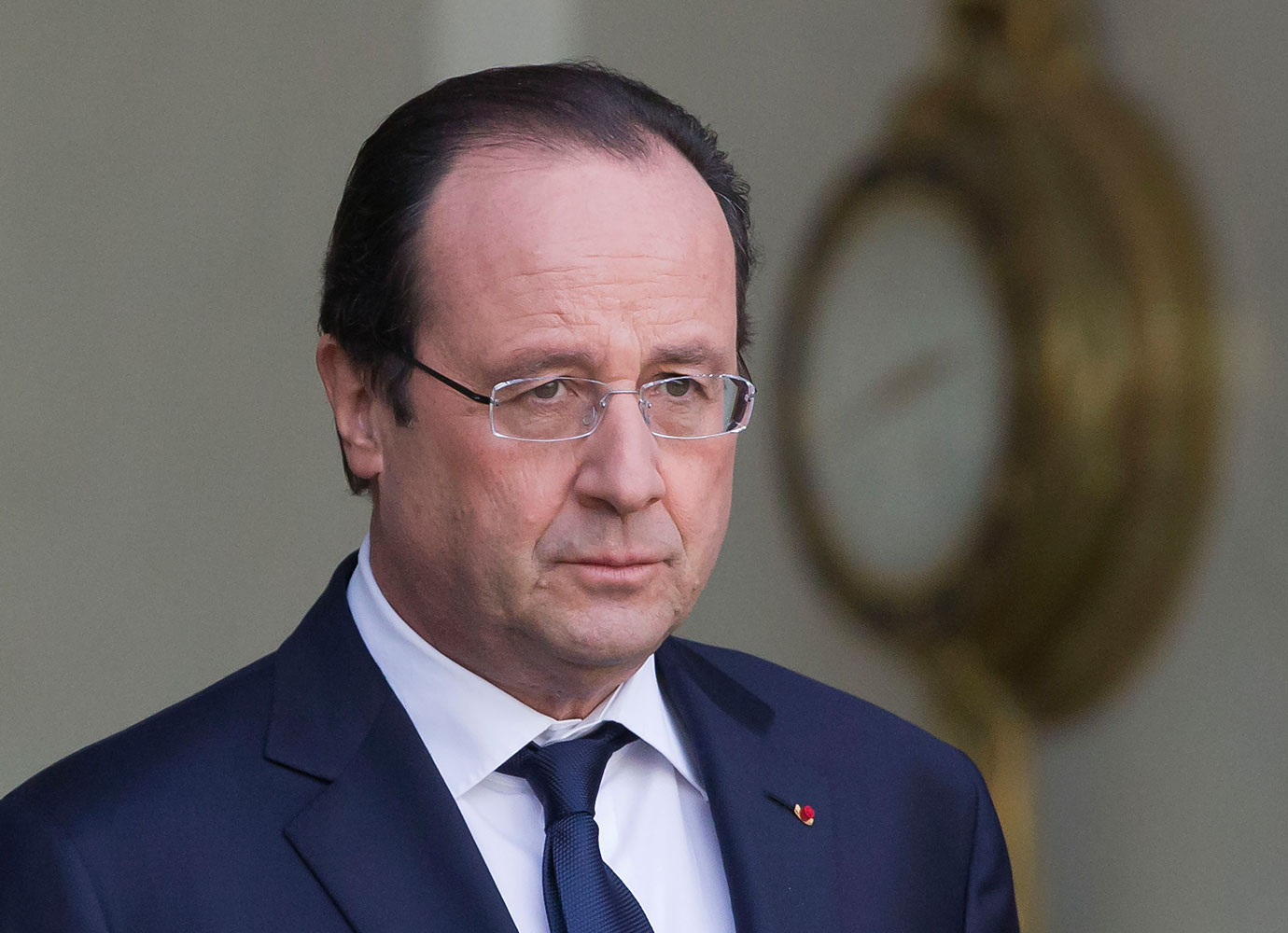
Hours before French President François Hollande announced that his relationship with his longtime partner Valérie Trierweiler was over, he told TIME in a wide-ranging interview that he had felt bound as a world leader to remain mum about his private life, even as intense scrutiny over his romantic status has reached fever pitch during the past two weeks. “Private life is always, at certain times, a challenge. And it has to be respected,” he said, sitting in his office at the ornate Élysée Palace, explaining why he had been so determined to guard privacy, despite the media frenzy. “In my own situation I cannot show anything … And I believe that everybody now understands that President or not President, one is entitled to have a private life. But of course when one is President this creates duties and obligations.”
Later in the afternoon, after TIME’s interview, the French news agency Agence France-Presse reported that Hollande had told the organization on the telephone that he had separated from France’s First Lady. “I am making it known that I have put an end to my partnership with Valérie Trierweiler,” the news report quoted him as saying, adding that the President had said he was speaking in his personal capacity, rather than as head of state.
The speculation about Trierweiler’s status deepened on Friday, when it emerged that she was heading to India on Sunday for a charity event. That sparked fresh questions from reporters about whether she maintained the official status of First Lady, a question that had dogged Hollande for more than two weeks, since a French gossip magazine first alleged that he was having an affair with an actress. In the days following, Trierweiler was hospitalized, supposedly for exhaustion, before resting at a presidential residence in Versailles, west of Paris.
(MORE: French President Hollande Officially Breaks Up With First Lady)
The hubbub over Hollande’s private life has been an unwelcome distraction for his Administration at a time when he is attempting to enact major reforms of France’s troubled economy and planning a crucial state visit to the U.S. on Feb. 11, the first official state visit to the U.S. of any French President in 18 years.
Even as TIME met Hollande inside the large, serene 300-year-old Élysée Palace in central Paris on Saturday, several television crews were parked up the block outside the high walls, waiting for the latest snippet of news concerning his romantic life. At a press conference for hundreds of journalists on Jan. 14, Hollande stonewalled several questions about his personal situation, saying that he was intent on focusing the country on his plans for reform.
Seated in his top-floor office, with the rain-splattered lawns of the large Élysée gardens outside, Hollande said that he was confident he would be able to push through his new reform plan, which includes cutting some of the social payments companies are obligated to make on behalf of their employees, as well as trimming France’s huge public spending. “When you ask French people: ‘Do you want high taxes or lower spending?’, the French people are now saying, ‘We want lower spending,'” Hollande said.
(MORE: François Hollande’s Affair: Scandal Reveals a Changing France)
The President said his upcoming Washington visit would be a chance to discuss crucial economic and political issues, including the fallout of American intelligence documents leaked by former National Security Agency contractor Edward Snowden. “Terrorism is a scourge that we absolutely have to fight with all our means,” he said. “But through legal means. Terrorism shouldn’t take us in the direction that they seek to take us. In other words, to renege on democratic principles.”
Hollande said he planned to continue the close intelligence sharing that exists between France and the U.S. He also spoke of the tumultuous foreign policy agenda he has tackled during his first 20 months in office, as well as his growing close cooperation with President Obama, which includes the fight against al-Qaeda in North Africa.
And he is optimistic but cautious about the European economy’s recovery from the long economic crisis that has battered the continent. “It’s over,” he said, breaking into English briefly. “That’s not to say there will never be a crisis again. That would be a very hazardous forecast for any economist.”
More Must-Reads from TIME
- Donald Trump Is TIME's 2024 Person of the Year
- Why We Chose Trump as Person of the Year
- Is Intermittent Fasting Good or Bad for You?
- The 100 Must-Read Books of 2024
- The 20 Best Christmas TV Episodes
- Column: If Optimism Feels Ridiculous Now, Try Hope
- The Future of Climate Action Is Trade Policy
- Merle Bombardieri Is Helping People Make the Baby Decision
Contact us at letters@time.com